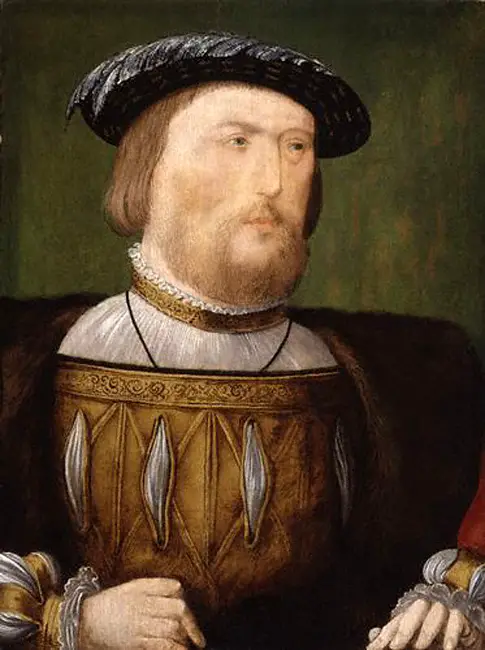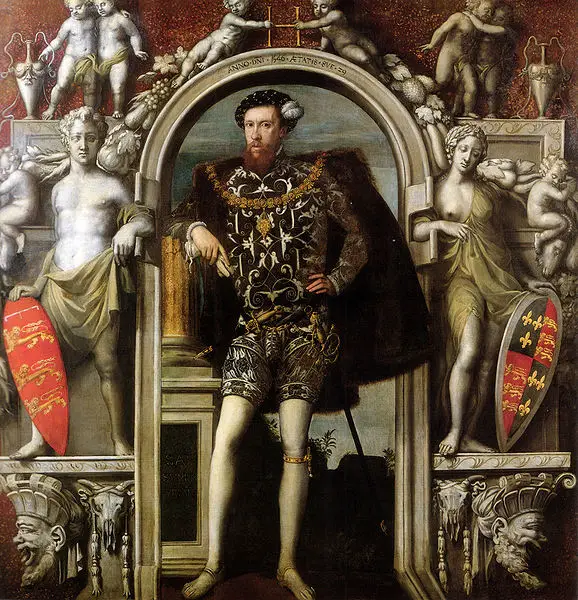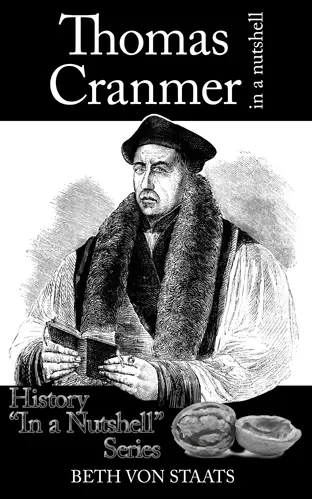December 2
Thank you to Beth von Staats for kindly contributing today’s Advent treat.

Advent 1546 in King Henry VIII's Court, after a lifetime of joyous holiday celebrations, was instead a time of tragedy. Henry VIII - gravely ill, in pain, short-tempered, and impulsive - was nearing death. Henry's ability to rule ebbing and flowing as his illness progressed through the Advent Season, Christmas and New Year, courtiers vied for an advanced position -- those caring for the King, his household staff -- all evangelical, holding the greatest advantage.
The evangelicals had his ear. They had his loyalty. Their hand-selected teachers groomed the child king, while his beloved Archbishop of Canterbury and Godfather to Henry's successor began to grow his eventual long-flowing beard. Some historians believe Henry's last will and testament was altered with the king unaware. There is a good reason for the supposition. Henry VIII's signature was stamped rather than signed in his own hand, the changes bestowing riches to the evangelical faction added willy-nilly to the end of the document.
Though evangelicals held the power position throughout the Advent Season, Henry VIII could be fickle and impulsively decisive. He might rally and the tide turn. Whoever held the cards the moment of Henry's death, held the power. So, to ensure victory in the end for the evangelical cause and ultimately a Protestant England -- John Dudley and Edward Seymour, both recently home from battles in France, along with the King's Secretary, Willaim Paget -- acted decisively. With information fed to them by flip-floppers Thomas Wriothesley and Robert Southwell, they swiftly orchestrated the fall of both Thomas and Henry Howard, both already weakened by the Catherine Howard debacle.
As the story goes, Henry Howard, Earl of Surrey -- one of Tudor History's greatest poets -- was arrogant, the walls of his home at Kenninghall decorated with heraldic badges including King Edward the Confessor allowed only for use by the King. Howard rose too high say the tales, his actions too threatening for a King in fear of his son's safety upon his own impending death. After all, the disappearance of King Edward IV's sons was recent history. Henry Howard, Earl of Surrey was doomed... as was his father, Thomas Howard, Duke of Norfolk. (How Thomas Howard avoided execution is the "stuff of legend". Do google. It's worth the peak.)
The holiday season of 1546 did not stall the intrigues of King Henry VIII's Court, Henry Howard arrested on 2 December, the Thursday before the second Sunday of Advent. Executed a few weeks later, nine days before King Henry VIII's own death of 28 January 1547 and six days after his impassioned eight-hour testimony at trial, Henry Howard, Earl of Surrey, lives on through portraiture and his exquisite English sonnets.

MARTIAL, the things that do attain
The happy life be these, I find:—
The richesse left, not got with pain;
The fruitful ground, the quiet mind;
The equal friend; no grudge, no strife;
No charge of rule, nor governance;
Without disease, the healthful life;
The household of continuance;
The mean diet, no delicate fare;
True wisdom join'd with simpleness;
The night dischargèd of all care,
Where wine the wit may not oppress.
The faithful wife, without debate;
Such sleeps as may beguile the night:
Contented with thine own estate
Ne wish for death, ne fear his might.
Beth von Staats is a history writer of both fiction and non-fiction short works. She is the owner and administrator of the wonderful Queen Anne Boleyn Historical Writers website - http://queenanneboleyn.com/ - and the author of Thomas Cranmer in a Nutshell. https://getbook.at/cranmer
